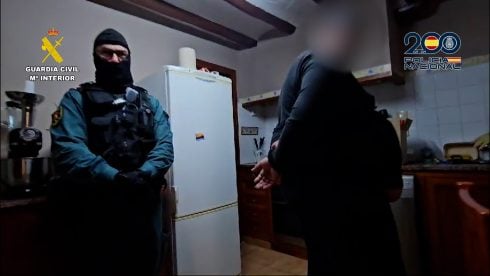THE shocking scenes of a young heifer being literally kicked to death during a feria in my home town of Alhaurin last month was a further reminder of the important work that still lies in front of us.
It is good news that there have been arrests, but it will remain to be seen whether anyone is actually punished for the brutal torture of the defenceless animal.
From my experience these cases have a nasty habit of being swept under the carpet and disappearing.
During the 40 years I have lived in Spain, I have seen a dramatic improvement in animal welfare. But unfortunately there is still a great deal of control required to stamp out the many blatant abuses of the existing animal rights laws in Spain.
When Spain joined the European Community, like most countries, there were get-out clauses that protected traditional activities such as bullfighting and other local customs.
It protected against future prosecutions and, so-called ‘interference’ from outside.
What this basically means is that over the last few decades when someone is denounced for animal cruelty, in the majority of cases, there is usually a get-out clause meaning the authorities do not need to prosecute.
In the rare cases that a prosecution is successful the penalties handed down by the courts are usually laughable.
Earlier this year, in the north of Spain, for example, half a dozen juveniles were fined just 100 euros for torturing a donkey to death.
And this included inserting a wooden pole in its rectum and leaving it to die!
My interest in animal welfare began when I was living in Fuengirola in the mid-1980s.
It came after I took a visit to the local zoo, where the animals were kept under the most horrific conditions in small dirty cages.
I decided something had to be done and spoke to the local police and the mayor about it, but nobody cared even to discuss the problem.
In desperation I contacted some of the leading international animal rights organizations, including the Born Free Foundation and the Briggite Bardot Foundation.
I had an immediate response and after various conversations, in particular with Virginia McKenna of Born Free, a leading British government zoo inspector was sent over to prepare a full report and make recommendations for improvements.
But unfortunately the local town hall got wind of the visit and decided to close the zoo to the public to avoid the inevitable bad publicity it would bring the town.
When I requested access to carry out the inspection my request was denied.
Meanwhile rumours were already circulating that some of the animals and exotic birds were being removed.
Repeated requests to carry out the inspection were turned down, so drastic action again was needed.
It was suggested by McKenna that if immediate access was not granted, Born Free would arrange for a group of celebrity supporters to fly to Malaga and protest outside the zoo.
This, she knew, would attract world-wide attention to this unacceptable situation.
It had just the desired effect, as within minutes of a local television interview about the plans, I got a call from the mayor’s office offering us access.
Within 48 hours the vet arrived and we entered the zoo accompanied by two local policeman. It is hard to imagine the scenes that greeted us as we went from cage to cage.
I decided something had to be done and spoke to the local police and the mayor about it, but nobody cared even to discuss the problem.
There is still a great deal of control required to stamp out the blatant abuses.
The valuable animals had long since been removed leaving only the elderly and sick.
The appaling conditions were the worst the UK zoo inspector had seen in all his yearsof visiting hundreds of zoos worldwide.
It appeared that the normal workforce had been laid off and only a couple of men from the town hall cleaning department were trying to look after what was left of the zoo.
Obviously this was an impossible task and the animals were suffering as a consequence.
I will never forget the sight of an old, blind seal, lying in a small concrete bath half-filled with what can only be described as a green soup-like mixture.
It was evident that the water had not been changed for an extremely long time and it was so horrific that a female journalist who was with us literally broke down and cried.
By far the majority of animals were suffering from malnutrition, lack of care, and needed immediate medical attention.
We spent a day and a half religiously checking each and every animal and bird.
Within a couple of days of returning to the UK I received a copy of the inspector’s report, which was extremely damaging.
He recommended that the zoo be indefinitely closed, all its animals receive immediate veterinary attention and then they be reallocated to suitable housing.
On receiving the report I tried to make an appointment with the authorities to discuss its contents and to put into effect the recommendations.
But nobody was prepared to discuss it.
The zoo was simply not reopened and the birds and animals quietly disappeared off the face of the planet.
Nobody knew what had happened to them.
And some months later, surprise, surprise, it was confirmed that the person responsible for running the zoo, on behalf of the town hall was in fact an international trader of exotic species!
The episode started my career representing the Born Free Foundation in Spain, and one of my first assignments was to investigate complaints against a circus.
During my investigations it was confirmed that the circus did not hold certificates from the Convention on the International Trade in Endangered Species, or CITES, for the majority of their animals. This meant that the circus was totally illegal.
When the circus arrived in Marbella, permission was obtained from Malaga to hold an official demonstration at the circus site.
This meant that local police were obliged to attend and maintain order.
But what they did was minimal. In fact laughable.
Despite the police presence, six of the demonstrators were attacked by circus staff and needed urgent medical treatment.
An audience was then duly requested with the duty judge who was able to take statements and see the injuries and medical reports.
Official denuncias were were signed and presented. In view of the seriousness of the case, I really considered that the authorities would take the appropriate action.
The circus could have been charged with illegally keeping endangered species, not to mention assaulting our group.
Many months later, however, I learned that the case had been dismissed on a minor technicality.
The situation in southern Spain is slowly improving for animal welfare, but unfortunately it is not the attitude of the authorities that is changing but the exposure that they now receive via the media when such atrocities take place.
During my investigations I was fortunate enough to find a young Spanish lawyer based in Malaga who was prepared to represent Born Free in prosecutions against the circus.
Unfortunately, all this came to an abrupt ending when the lawyer received a telephone call from a senior government minister in Madrid ordering her to drop the case.
At the same time I also received a call from this very same gentleman threatening me with deportation if I caused more problems for the authorities.
It didn’t scare me and I was prepared to carry on. But unfortunately the lawyer had no other option than to withdraw from the scene.
The circus was permitted to leave Andalucia and set up once again in another part of the country.
During the year or so I investigated on behalf of Born Free I had many threats made against my personal safety.
One of the most serious came when the Foundation asked me to investigate what had happened to 20 odd lions that had mysteriously entered Spain and then gone missing.
After weeks of investigations I obtained information that these animals were destined for, what is known as, ‘canned hunting’.
This is the incredibly barbaric pastime when wild animals – often from circuses – are released on a fenced estate and shot, usually very easily, by hunters.
Anyway, my enquiries led me to a finca near Estepona and I informed the authorities of my findings.
But, of course, the police were not prepared to take action and I soon had to abandon investigations after I received a very threatening telephone call.
Put it this way, I was not surprised when the Olive Press exposed a canned hunting operation taking place in Extremadura a few years ago, nor when I read recently that three individuals were arrested for ‘canned hunting’ near Estepona.
It only took about 20 odd years to make this prosecution. How many animals were shot during this period? Shame on those responsible.
My last and final campaign was for the Mijas donkeys.
I appreciate that the animals are a tremendous tourist attraction but the town hall completely turns a blind eye to their wellbeing.
I filmed an example of brutality in which a donkey was beaten so hard that it fell to the ground unconscious, but the local police refused to take any action against the owner responsible.
Ultimately, the anger and opposition I was facing was getting too much and I decided enough was enough when my car was vandalized and I received various threats.
Thankfully nowadays, the Spanish have set up their own animal charities and donkey sanctuaries.
They are now working closely with the authorities and owners to improve the donkeys’ conditions.
Things definitely appear to be changing for the better.
The situation in southern Spain is slowly improving for animal welfare, but unfortunately it is not the attitude of the authorities that is changing but the exposure that they now receive via the media when such atrocities take place.
They are then forced to appear to be doing something. What a shame they are not more interested in animal welfare rather than their own image.
We still have a long way to go, but hopefully we will get there one day!










“a donkey was beaten so hard that it fell to the ground unconscious”
Next time you go to Mijas, be sure not to take a Donkey ride! Poor things.
Thanks for a very informative article on animal abuse.
Seeing what the world finally starts doing with child abuse, I take it that animals are indeed very low on the priority list.
But keep up the good work and don’t let the buggers win!
Woody Harrelson, Nigel Barker and David Suzuki support an 18 year old’s dream for Animal Freedom Day
International — On July 24th 2010 the world will unite to free animals from abuse, torture and neglect.
Nadia Masoudi, an 18 year old film-maker / animal activist from Hamilton, Ontario Canada has organized the world’s first online Animal Freedom Day. To find out more about Animal Freedom Day please visit: http://www.animalfreedomday.com
This event has brought global attention to some of the most influential celebrities of our time. Some of whom who show support include; Woody Harrelson, Nigel Barker, David Suzuki, Georges Laraque and more.
Hahahaha! The authorities have only recently decided that they should do something at long last about domestic abuse. As Ernesto says animal abuse is going to be very low on the list. I was once told you can’t polish a turd but it seems the authorities still think spain sparkles.